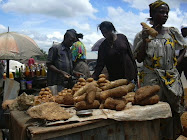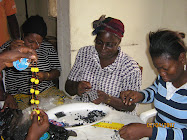A comment from Cynic which I think furthers the conversation:
I was reading a new memoir the other day, by a Harvard graduate who went to work as a prison librarian. Much of the book is an account of his acculturation. He discovered that his robes and spell books, so to speak, were a lot less useful than plate and a broad-sword. That he couldn't afford to be seen as a punk. He was perfectly equipped for a comfortable, upper-middle-class life - and wholly unprepared for his new environment.We tend to associate culturally-specific practices with the relative successes of the cultures with which they're associated. Things rich people do must be beneficial; habits of the poor, not. The reality is more complex. Culture of Poverty is a label attached to a wide array of behaviors. There are behaviors - physical assertiveness - well-suited to that environment that may tend to inhibit success elsewhere. There are other behaviors - emphasis on familial and communal ties - that will cut both ways, sustaining people in difficult times but sometimes making it harder for them to place their individual needs above the demands of the group. And there are others - initiative and self-reliance - that are largely positive, and in many ways, even more advantageous if carried further up the social scale.I bristle when I see people discuss the culture of poverty as a pathology. That's too self-congratulatory, and too cramped a view. The reality is that, like all cultures, it has aspects that translate well to other circumstances, those that translate poorly, and those that are just plain different. And that's no different than the Culture of Affluence.
Reading this got me thinking on those lessons, which originate in poverty, that ultimately served me quite well. People talk about reading books as being written off as "acting-white." I guess. Here's what I know about that: When I was eighteen, binge-drinking and snorting coke was "acting white." I was at Howard then, where a large swath of the student population hailed from high schools where most people didn't go to college. Most of us had watched the crack era unfold firsthand. The notion of coming to college and essentially tempting suicide was seen as the province of "The Culture Of Affluence," of the rich and the foolish, of the white.
And now for our standard disclaimer: This is an expression of how it was processed at the time, and not an accurate depiction of the great variety and richness of the white American experience. I can well imagine that there were also plenty of poor white kids at that time who dismissed such practices as "The Culture of Affluence" also. I am offering some reflection on how we processed the world, and not how the world, in its complex totality, actually worked.






